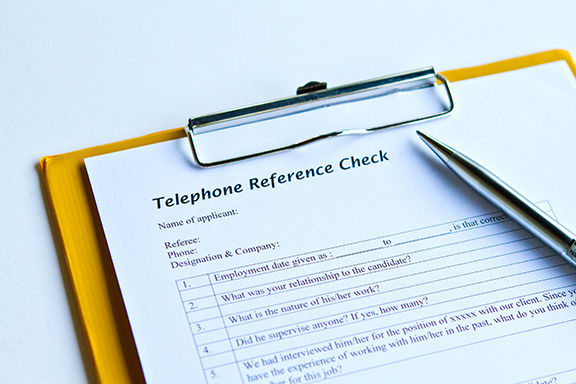Fears about potential liability are largely baseless


By Stuart Rudner
In the vast majority of cases, there is no reason not to provide substantive references for former employees. Similarly, there is absolutely no good reason for the increasingly common policy of not providing anything more than confirmation of employment.
For years, this has been a topic of debate, with the majority of employment lawyers encouraging employers to provide. At one session of the “HR Law for HR Professionals” course that I founded, the discussion evolved into a debate between myself and the two other employment lawyers WHO were present on one side, and virtually the entire class of HR Professionals on the other.
I have written about this topic before — see Providing employment references just makes sense as an example. I understand that the concern driving the "no references" policy is one of perceived potential liability. However, this fear is largely baseless and does not support a blanket policy prohibiting positive or negative commentary regarding former employees.
Don’t be afraid to say something negative, as long as it’s true
With respect to negative commentary in a reference check, there is widespread fear of claims of defamation, along with other potential claims if the reference costs the individual a job. However, as long as the organization providing the reference is acting honestly and in good faith, they will not be subject to liability, even if they divide a negative reference.
I have been saying this for years, and in the recent court decision in Papp v Stokes et al, the Ontario Superior Court of Justice confirmed that:
• truth is a defence to an allegation of defamation
• individuals/organizations providing a reference enjoy a qualified privilege which also provides protection so long as he acted in good faith.
As the Court wrote:
“There is no issue here that that the words spoken by Ernest Stokes to Amanda Ho were defamatory, in the sense that they would tend to lower Adam Papp's reputation in the eyes of a reasonable person; (2) that the words in fact referred to Adam Papp; and (3) that the words were published, meaning that they were communicated to at least one person other than the plaintiff.
“These elements having been established, the onus then shifts to Ernest Stokes to advance a defence in order to escape liability.
“Ernest Stokes raises the defence of justification - that the statements were substantially true.”
“Ernest Stokes also raises the defence of qualified privilege. It is clear that words ‘published’ in the context of a reference check fall within the range of qualified privilege. This privilege can be defeated by proof of malice.
“Counsel for Mr. Papp submit that even if Ernest Stokes had an honest belief in what he told Amanda Ho he demonstrated a reckless disregard for the truth as he did not bother to verify what he had been told about Adam Papp’s behaviour with Adam Papp himself.
“I am not satisfied on a balance of probabilities that Ernest Stokes acted maliciously in what he said to Amanda Ho. It is clear that what Ms Ho recorded of her conversation with Ernest Stokes is not a complete record. I am satisfied that what Ernest Stokes said to Amanda Ho he genuinely believed to be true.
“I also find no basis upon which to conclude that Ernest Stokes was reckless. He did not accept at face value what he had been told by Aaron Stokes as he was aware of the differences between Aaron Stokes and Adam Papp. He took steps to verify what he had been told by speaking independently with Anthony Sturgeon and Rob Daniells. He also said what he could to Amanda Ho in respect of Mr. Papp’s positive qualities. I find no evidence to support the contention that Mr. Stokes acted with malice.
“Having made these findings I am satisfied that Ernest Stokes has a complete defence to defamation, and there is no basis for punitive, exemplary or aggravated damages or damages on the basis of intentional infliction of mental suffering.”
In other words, the reference provider should not be dishonest, vindictive, or otherwise act in bad faith and out of motivation to harm the subject of the reference check. However, as long as they're acting on seeing in good faith, they will not be exposed to liability even if they say negative things.
Liability for a positive reference is extremely unlikely
Interestingly, I have also often been told that fear of liability arises out of providing good references. This theory seems to be that if you give a positive reference for the applicant, the potential employer relies on that to hire the person, and then subsequently finds that the individual is unsuitable, it might make a claim against the reference provider for misrepresentation.
Such a claim has never succeeded in Canada. Again, however, reference providers should act in good faith. If their view is that the subject of the reference check was dishonest and untrustworthy, they should not suggest otherwise. That said, in most cases, employers can find some positive things to say about a former employee.
For example, if the individual was a very hard worker, but did not get along with her colleagues, then any reference should comment positively on her work ethic. The reference provider should not say the person also had great social skills and was well-liked by all of her colleagues.
Hopefully, the recent decision in Papp will bring this issue back into focus and confirm that even providing negative references, in and of itself, will not result in liability. The key for reference providers is to ensure they act honestly and in good faith. We also encourage employers to have clear policies that set out who is permitted to provide references, so they can control the information that is being disseminated.




